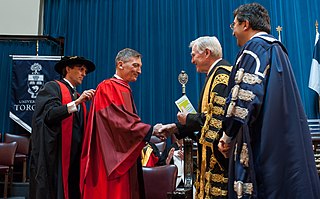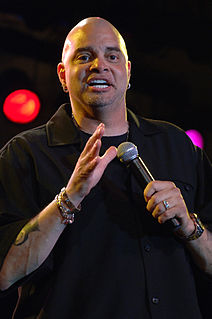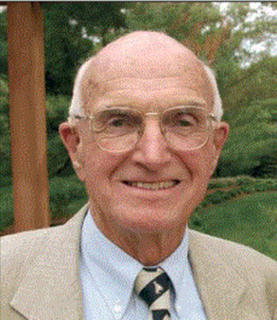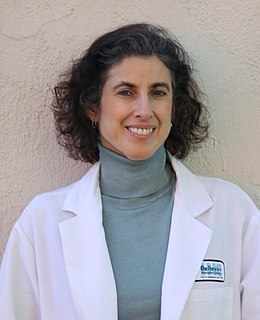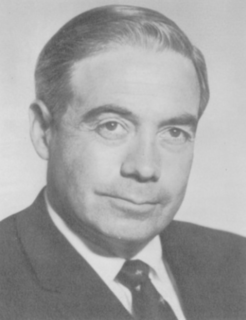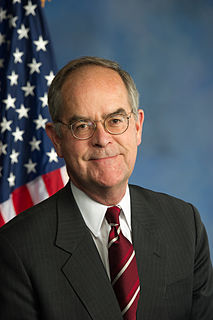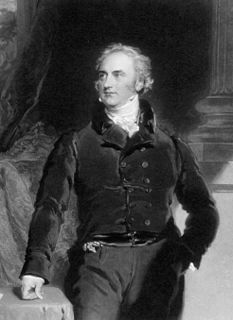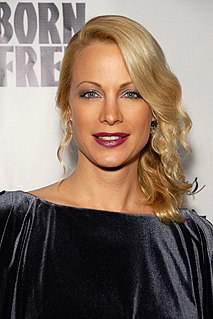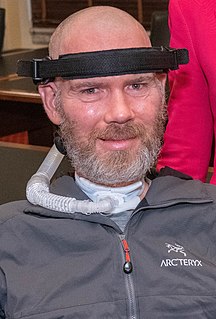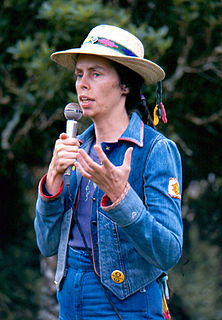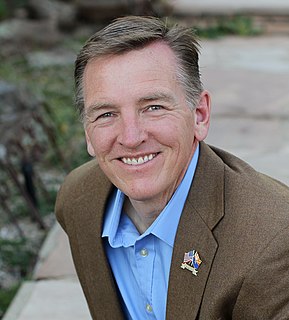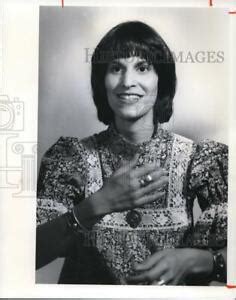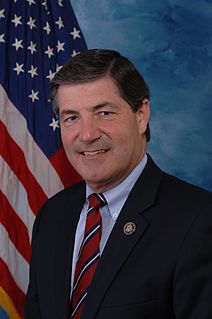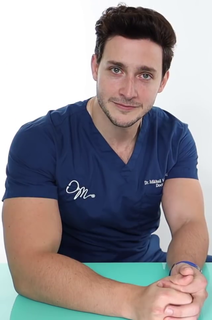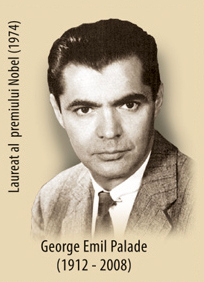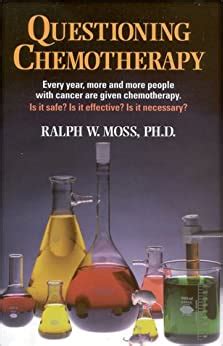Top 1200 Medical Bills Quotes & Sayings - Page 3
Explore popular Medical Bills quotes.
Last updated on November 8, 2024.
A lot of the medical imagery has to do with my own biography. I had open heart surgery, I had knee replacements, I had a hiatal hernia, etc. Every time you go for surgery, you get a whole spectrum of imaging. Of course, I've been doing research in imaging technology across the board for close to twenty years. When you think about it, medical imaging is actually quite new. The first major medical image was the x-ray in 1895. That was the first time you got imaging of anything that's in the bodily interior.
In a wristwatch, imagine the battery is in the strap and there's a medical sensor in there connected to the internet. If someone is monitoring that, they could phone up if the user has forgotten to take some medication. This could save hundreds of dollars in medical fees later. What's missing? It's a stable battery.
The efforts of the medical profession in the US to control:...its...job it proposes to monopolize. It has been carrying on a vigorous campaign all over the country against new methods and schools of healing because it wants the business...I have watched this medical profession for a long time and it bears watching.
In medical school, students are immersed in the realm of medical ethics. It's where new doctors study, learn right and wrong, ask tough questions, and discuss things like end of life care, genetic testing, and patients' rights. In lots of ways, it's the most important part of being a compassionate and competent doctor.
I spent money, and I kept thinking, 'I get one more movie and I'll wipe these bills out,' but that movie never came. That black pride, I said, 'Man, I'm going to hang in there, I'm going to pay these bills.' So you owe a million dollars. 'I can pay that.' OK, fines, fees, now you owe two and a half million. 'But I didn't do nothin'!'
As a physician I have sympathy for patients suffering from pain and other medical conditions. Although I understand many believe marijuana is the most effective drug in combating their medical ailments, I would caution against this assumption due to the lack of consistent, repeatable scientific data available to prove marijuana's benefits. Based on current evidence, I believe that marijuana is a dangerous drug and that there are less dangerous medicines offering the same relief from pain and other medical symptoms.
A noted cancer specialist in Boston said he believed that if some simple and inexpensive replacement for Chemotherapy for the treatment of cancer were found tomorrow, all US medical schools would teeter on the verge of bankruptcy, so integral a part of their hospital revenues is oncology, the medical specialty of cancer treatment
It is ironic that in the same year we celebrate the 50th anniversary of the discovery of DNA, some would have us ban certain forms of DNA medical research. Restricting medical research has very real human consequences, measured in loss of life and tremendous suffering for patients and their families.
The Internet ethos of diversity and competition runs exactly counter to uniform, gatekeeper-oriented medical culture - the technocratic philosophy of the 'one best way' embodied in our pharmaceutical regulations. On the Net, medical information is abundant, and pharmacies, domestic and foreign, operate on many different models.
One of the first things we teach medical students is to listen to the patient by taking a careful medical history. Ninety percent of the time, you can arrive at an uncannily accurate diagnosis by paying close attention, using physical examination and sophisticated lab test to confirm your hunch (and to increase the bill to the insurance company).
Medical disenfranchisement is fueled by a host of factors that include worsening shortage of primary care doctors in needy communities and a troubling scarcity of providers willing to treat the uninsured or publicly insured. Adding to the trend are fewer medical students choosing primary care over more lucrative and specialized fields.
I tell [medical students] that they are the luckiest persons on earth to be in medical school, and to forget all this worry about H.M.O.'s and keep your eye on helping the patient. It's the best time ever to be a doctor because you can heal and treat conditions that were untreatable even a couple of years ago.
Sandeep Jauhar specializes in peeling back the veneer, revealing the discomfiting truths of today’s medical world. He is unafraid to dig deeply and honestly, both within himself and within the medical profession. Doctored raises critical questions that twenty-first-century medicine must answer if it is to meet the needs of its patients as well as of its practitioners.
Following bio-medical treatment - which is basically changing the diet, giving vitamins and supplements and detoxing the body from metals or candida - and he recovered. And the reason the medical community has such a hard time with this is because we are treating and healing a vaccine injury ... this is truly a revolution.
Harriet Washington, in 'Medical Apartheid: The Dark History of Medical Experimentation on Black Americans from Colonial Times to the Present,' documents the smallpox experiments Thomas Jefferson performed on his Monticello slaves. In fact, much of what we now think of as public health emerged from the slave system.
Well, maybe it was just that I wasn't going to like anybody because I had to work and I had to explain to my teachers why I wasn't keeping up. I'd fall asleep and things in class and they'd lecture me about the reality of their classroom. I said, 'You want to see my reality?' I opened up my backpack to where you usually keep your pencils. That's where I kept my bills... electric bills, rent... That was my reality.
Zombie books were going to be my passion projects, but certainly not pay the bills. I thought I was going to have to get a real job on a sitcom or something, and have my zombie books to remind myself I was still a writer at heart. I never thought I could actually pay my bills and write what I wanted.
Many of those in the medical fraternity instantly label treatments in the traditional, natural or holistic health fields as quackery. This word is even used to describe Traditional Chinese Medicine and the Indian Ayerveda, two medical systems which are far older than Western medicine and globally just as popular.
Nothing in medical literature today communicates the idea that women's bodies are well-designed for birth. Ignorance of the capacities of women's bodies can flourish and quickly spread into the popular culture when the medical profession is unable to distinguish between ancient wisdom and superstitious belief.
We have a lot of things, you know, as a medical professional, we have to start looking at, some of the, particularly, the transgender issue has to be looked at in the psychotic - the psychosis in regards to the medical community and looking at that application because there's a lot of mixed studies in those regards.
Medical knowledge and technical savvy are biodegradable. The sort of medicine that was practiced in Boston or New York or Atlanta fifty years ago would be as strange to a medical student or intern today as the ceremonial dance of a !Kung San tribe would seem to a rock festival audience in Hackensack.
In our 'don't just sit there, do something' culture, when we get sick we are supposed to become characters in a heroic medical narrative that conceals the remorselessness of pathology, the intractable fact of human vulnerability, and the inevitable inadequacies of medicine. To many of the participants in the medical drama, aggressive treatment - even when it fails - represents a quasi-religious quest for immortality and meaning.
The field of U.S. cancer care is organized around a medical monopoly that ensures a continuous flow of money to the pharmaceutical companies, medical technology firms, research institutes, and government agencies such as the Food and Drug Administration (FDA) and the National Cancer Institute (NCI) and quasi-public organizations such as the American Cancer Society (ACS).
There may perhaps be a new generation of doctors horrified by lacerations, infections, women who have douched with kitchen cleanser. What an irony it would be if fanatics continued to kill and yet it was the apathy and silence of the medical profession that most wounded the ability to provide what is, after all, a medical procedure.
I was not a person who you would find on social media traditionally, but when I was introduced to Instagram, I saw it as a way to show other medical students on their journey that you don't have to give up your life to study medicine. The stigma that you can't have a life in medical school was a fallacy, and I was the living proof of that.
In 1973, I left the Rockefeller University to join the Yale University Medical School. The main reason for the move was my belief that the time had come for fruitful interactions between the new discipline of Cell Biology and the traditional fields of interest of medical schools, namely Pathology and Clinical Medicine.
In the past, [medicalization]has been portrayed as something that doctors inflict on a passive and un-suspecting world - an expansion of the Medical Empire. But in reality, it seems that these reductionist bio-medical stories can appeal to us all, because complex problems often have depressingly-complex causes, and the solutions can be taxing, and unsatisfactory.
I am a big believer that orderliness begets wealth. A pile of bills and statements - whether paid or not - is a sign that someone is clueless about what's coming in and going out. When you consciously open, read, and file away your bills and statements, you are connecting with your money and taking control of your life.
...60 advocates of unorthodox therapies whose credentials are given in the ACS book (above).(:) Of these 60, thirty-nine or almost two-thirds, hold...medical degrees from such universities as Harvard, Illinois, Northwestern, Yale, Dublin, Oxford, or Toronto. Two are osteopaths. 3...also hold...(PhD's)....scientific....reputable....8 others received PhD's in such fields as chemistry, physiology, bacteriology, parasitology, or medical physics, from...Yale, Johns Hopkins, UC Berkeley, Columbia, and NYU. Thus over 75%...are medical doctors or doctors of philosophy in scientific areas.



